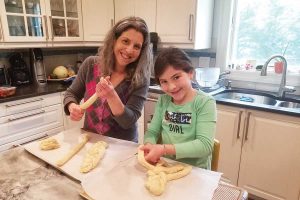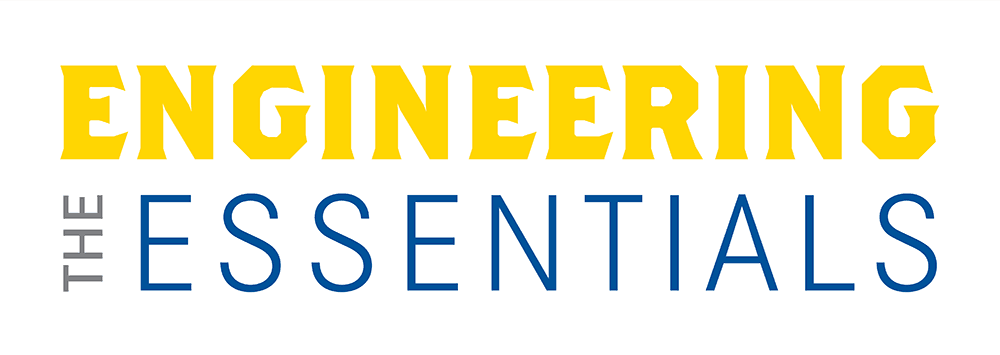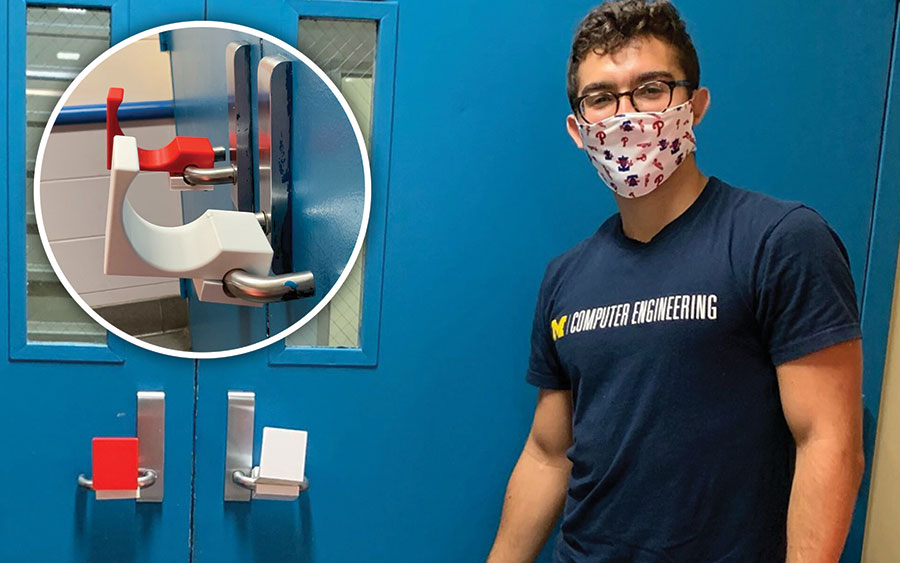
Spring into Action
Keeping Traditions Alive in Creative and Safe Ways

How can we facilitate hands-on learning when we can’t share space?
Since its inception, The Leffell School’s Engineering and Entrepreneurship (E²) program has grown to occupy four physical spaces in the Upper School building. These workshops are a treasure trove of tools, gadgets, and tech that allow students to theorize, test, gather data, and modify their designs, all with real-time feedback from incredibly knowledgeable staff members. So when students began learning remotely last spring, Director of Engineering and Design Dr. Danny Aviv had to quickly determine how to provide a seamless learning experience within the limitations of space and time.
He started with a focus on skill acquisition by giving students access to programs they could teach themselves such as Adobe’s Creative Cloud suite, 3D design software, and the Python programming language. Around the same time, Aviv learned that Tikkun Olam Makers (TOM) had launched an effort to flatten the curve of those infected with Covid-19 by creating an open source design library for PPE and other products that help protect essential workers. He connected with Eitan Abecassis, Class of 2018 E² alumnus and Engineering student at the University of Michigan, who suggested they work together on a minicourse where students address the challenge put forth by TOM.

Leffell already has a long history with TOM and has hosted yearly Makeathons where “Need-Knowers” (people living with disabilities, veterans, the elderly and the poor) partner with E² students to create engineering-driven solutions to their individual challenges. TOM’s Covid-19 efforts provided the ideal platform for Aviv to focus students’ work on the larger global context and connect it to Tikkun Olam.
Back in class, students had to propose products that would help Need Knowers and essential workers. Eitan Gotian and Justyn Zvi, two 11th graders in E², proposed a hands-free door opener that would limit possible surface transmission of Covid-19. To date, they have spent over 400 hours collaborating on, refining, and 3D-printing their product, which they hope to see in use in the very near future. Junior Alex Gitnik wanted to support essential workers by providing them with “earsavers” which make it more comfortable to wear masks for long periods of time. He found a National Institutes of Health (NIH)-approved design in TOM’s Covid-19 library and requested permission to print it using the school’s 3D printers. So far, he and other Leffell students have printed almost 13,000 units, which TOM is helping them distribute.
The students credit the school with instilling in them a desire to help others. “The Leffell School doesn’t just teach us academics,” said Eitan Gotian, “we’re also learning morals and Jewish values, then using those values to make meaningful impact.” Justyn, who attended a public elementary school prior to Leffell, agrees, noting that “Public schools don’t focus on a young person’s potential to have impact. What The Leffell School does best is put us into situations where we learn on our feet.”
Share